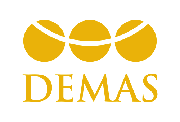Protecting Whistleblowers in Central and Eastern Europe
On March 20-21, we brought together civil society actors from the region with academics, journalists, legal professionals, and other experts—including from the European Commission, the Whistleblowing International Network, and the International Bar Association—to discuss effective whistleblower protection and the challenges to it in the region and beyond.
We were pleased to be able to interview some of the experts joining us for this roundtable and to produce a video about the event and the important themes discussed. Watch it if you want to hear their perspectives on what is needed for effective whistleblower protection and what the challenges are in the region and beyond.
Read more here or watch the video.
Meeting with the African Judicial Network in South Africa
On March 27-28, the CEELI Institute organized the fifth roundtable session for judges of the African Judicial Network in Cape Town, South Africa. The roundtable brought together judges from Botswana, The Gambia, Ghana, Kenya, Malawi, Namibia, Nigeria, South Africa, Tanzania, Uganda, and Zambia, who, over the course of two days, discussed good judicial practices on asset recovery cases, including transnational cybercrimes and asserting judicial independence. The session also allowed time for the judges to focus on countering judicial interference and strengthening judicial governance.
Another highlight from the event was the release of the “Practical Guidelines on Case Management for Judges,” the first publication of the core group members of the African Judicial Network. We hope that this publication will be a useful tool for individual judges as well as for those responsible for developing policies and guidance for judicial practice, including members of judicial councils, court presidents, officials from judicial associations, and any other members of the judiciary who are responsible for regulating judges’ work practices.
More information on websites or in Case managment guidelines.
Welcoming the 5 AM coalition from Ukraine
“It was five o’clock in the morning when we woke up in Kyiv and heard explosions. And the very next day, when we came out of the shelters, we started gathering information about the Russian attacks. Hence the name Ukraine 5 AM.” This is how Maryna Khromykh described the creation of the Ukraine 5 AM coalition, which documents Russian war crimes, when interviewed by the Czech media outlet Reflex. She is the executive director of the DEJURE Foundation, a Ukrainian NGO focusing on rule of law and justice reforms.
In early March, the CEELI Institute welcomed 20 representatives of the Ukraine 5 AM coalition for a coordination meeting. The coalition includes a total of 31 non-profit organizations and four experts on international law and human rights. They work together to protect victims of armed Russian aggression in Ukraine and to bring to justice top leadership of the Russian Federation and direct perpetrators of war crimes. During the meeting, members of the coalition identified priority areas, tools, and protocols of joint advocacy work. Among the themes discussed were the specific aims of advocacy at the International Criminal Court (ICC) level and how to use advocacy tools to achieve justice at the ICC level.
Read more here.
Launching a New Training on Cryptocurrency
Identification of digital assets, evidence of those assets’ links to a crime, the evolution of financial crime and cryptocurrency: these are a few of the topics covered in a CEELI Institute training course in February. During the three-day course, 22 investigators from Bosnia and Herzegovina, Croatia, Macedonia, Serbia, and Ukraine gained skills on identifying and seizing criminals’ digital assets. This course aimed to give them an understanding of the terms associated with cryptocurrency—such as blockchain, tokens, decentralized finance, non-fungible tokens, and others. It also provided investigators with a baseline knowledge of the technology underpinning cryptocurrency, the sources of information available to investigators, and keys to interpreting on-chain data and open-source information. This training on cryptocurrency followed a highly successful workshop on cybercrime that took place in August 2022, which we will run again this month.
Equipping Judges to Adjudicate Complex Corruption Cases
In January, 32 judges and prosecutors from Central and Eastern Europe came to the Villa Grébovka for a a judicial workshop entitled Adjudicating Corruption Cases
The main objectives of this workshop were to share potential strategies to promote effective trial management, to increase levels of understanding of the various types of corruption crimes and cases that are prosecuted in the region, and to provide an overview of the EU and international anti-corruption standards and instruments along with specialized European institutions and organizations.
The session also focused on the treatment of appropriate evidence in corruption cases: How can evidence be effectively introduced in court? What tools and mechanisms are available to judges to properly treat such evidence? We also discussed some of the recent practices used in corruption schemes such cryptocurrency, social media, and obscuring ultimate beneficial ownership of companies.
Given the complexity and international nature of many contemporary corruption cases, equipping the judiciary to be able to meet these challenges with appropriate expertise is key to combatting them.

